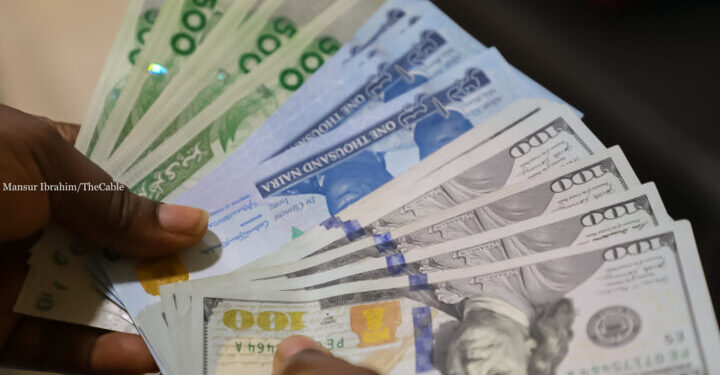In a disheartening development for Nigeria’s economy, the national currency, the naira, hit an unprecedented low against the dollar on the official Nigerian Autonomous Foreign Exchange Market. Reports from FMDQ Exchange revealed that the naira plummeted to a historic low of N1,534 against the dollar on Monday, marking a significant 3.93% decrease compared to the previous week’s closing rate of N1,476.13/$.
This latest drop signifies the deepest decline recorded since the Central Bank of Nigeria initiated the floatation of the national currency in June 2023, sending shockwaves through the financial sector and sparking concerns among citizens.
The disparity between official rates and those in the parallel market is increasingly widening, with the naira trading at rates between N1,480 and N1,490 at informal exchanges. This gap has become more pronounced since the recent adjustment in the methodology used by FMDQ to determine the official exchange rate.
The adjustment in the calculation methodology triggered a steady depreciation of the naira, shifting it from over 900 naira to the dollar to over 1,400 naira. In December last year, the naira breached the N1000/$ mark on the official window, marking a series of record lows that have persisted into the new year.
The decline in the naira’s value has prompted significant actions from regulatory bodies. The Central Bank of Nigeria, in a bid to stabilize the situation, ordered banks to offload excess dollars in the official FX market. This directive resulted in a notable decrease in dollar sales by banks, dropping by 56.58% to $253.77 million on Friday from a peak of $584.53 million.
Despite efforts to mitigate the crisis, the impact is evident in everyday transactions. Currency traders, particularly Bureau De Change operators in Abuja, quoted buying rates for the dollar at N1,480, with selling prices reaching as high as N1,503. This has left traders grappling with reduced profit margins amid the currency’s freefall.
Commenting on the situation, Mallam Yahu, a BDC operator in Wuse, emphasized the challenges faced by traders, stating, “We currently buy between the rate of N1,480 and N1,490, and we sell at N1,500 and N1,503.” Another seller, Yahaya Abdul, expressed concerns about the viability of the market, noting his reluctance to buy beyond the rate of N1,460.
As the naira continues its downward spiral, stakeholders are increasingly apprehensive about the economic ramifications and the potential for further instability. With ongoing efforts to address the forex crisis, the coming days will be crucial in determining the trajectory of Nigeria’s currency and its broader economic landscape.










